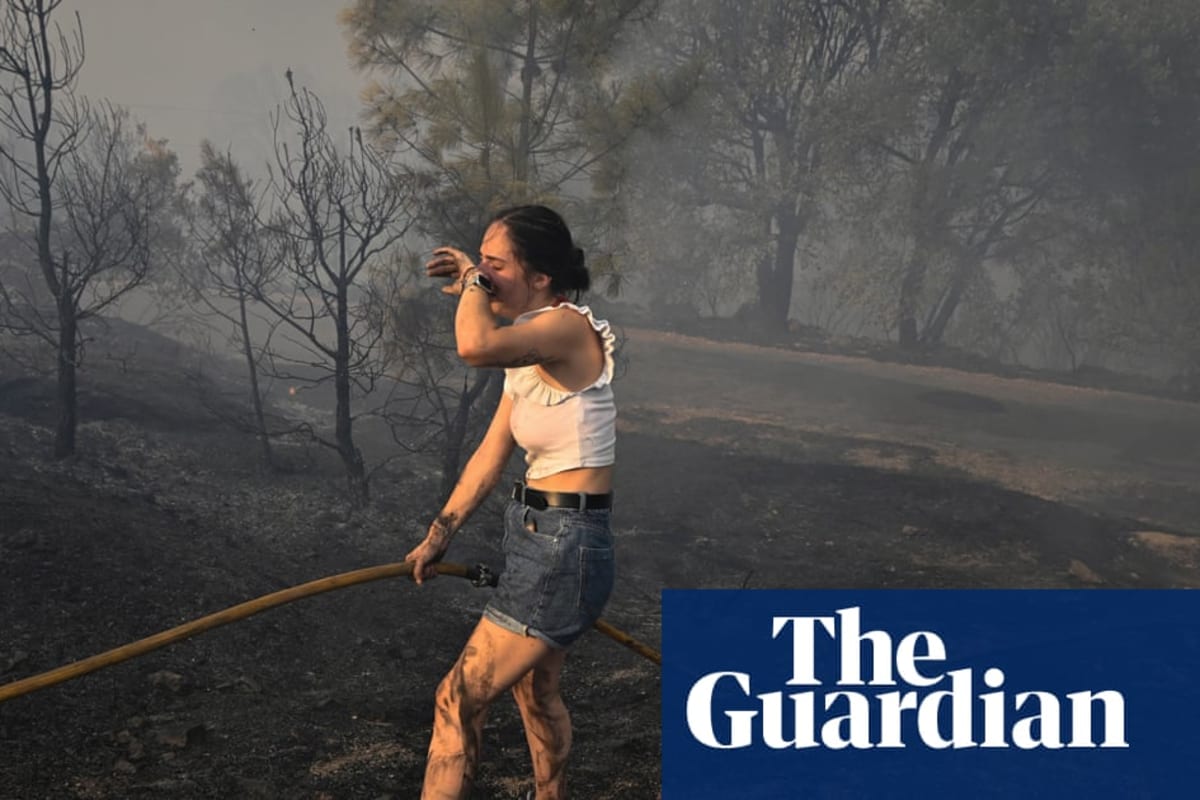Spain's Wildfires: A Climate Emergency's Grim Toll

The Scars of Fire: Paüls and Spain's Wildfire Crisis The feast of Sant Roc in Paüls, Spain, on Saturday will be a celebration tinged with profound relief Last month’s wildfire, a near-catastrophe that consumed 3,300 hectares (8,154 acres) and painted the night sky a hellish orange, brought the community agonizingly close to a repeat of the 2009 Horta de Sant Joan fire, which tragically claimed five firefighters’ lives This incident serves as a stark reminder of Spain’s growing vulnerability to the escalating effects of climate change and the devastating consequences of increasingly frequent and intense wildfires A Nation Under Siege: Spain's Wildfire Pattern Spain, like many Mediterranean countries, is experiencing a dramatic increase in both the frequency and intensity of wildfires Prolonged periods of drought, exacerbated by rising global temperatures, create tinderbox conditions These conditions, coupled with strong winds and often-negligent human activity (such as discarded cigarettes or uncontrolled agricultural burning), provide the perfect recipe for disaster The devastating fires in Paüls and Horta de Sant Joan are not isolated incidents Throughout the country, wildfires are claiming significant acreage, causing substantial economic losses, and posing a constant threat to life and property The human toll – both in terms of lives lost and the psychological trauma inflicted on affected communities – is immeasurable Understanding the Regional Context: Mediterranean Vulnerability The Mediterranean region, including Spain, is a global hotspot for wildfire activity Several factors converge to amplify this risk The climate is characterized by hot, dry summers and mild, wet winters, creating a cyclical pattern of vegetation growth and desiccation
Background
This, combined with the region’s complex topography and the prevalence of flammable vegetation (such as scrubland and pine forests), creates ideal conditions for rapid fire spread Furthermore, population density in many wildfire-prone areas increases the risk to human life and infrastructure The increasing frequency and intensity of heatwaves, a direct consequence of climate change, are dramatically worsening the situation, extending the fire season and intensifying the fires themselves Global Implications: Climate Change and the Future The wildfires in Spain are not just a local problem; they represent a global challenge linked to the ongoing climate emergency The scientific community has unequivocally linked the increase in wildfire intensity and frequency to rising global temperatures The impact extends far beyond Spain's borders
The smoke from these fires contributes to air pollution, affecting air quality across regions and potentially having significant health consequences.
The destruction of forests and other ecosystems also has far-reaching implications for biodiversity, carbon sequestration, and the global climate Therefore, addressing the wildfire crisis requires a global, coordinated approach focused on both mitigation (reducing greenhouse gas emissions) and adaptation (improving forest management, early warning systems, and community preparedness) Southeast Asian Relevance: Shared Challenges in a Changing Climate While geographically distant, Southeast Asia shares similar vulnerabilities to extreme weather events exacerbated by climate change Many countries in the region experience prolonged dry seasons and significant deforestation, leading to increased wildfire risk Understanding Spain’s experience with wildfire management, early warning systems, and community response can offer valuable lessons and insights for countries in Southeast Asia The shared challenge necessitates international cooperation and knowledge sharing to build resilience against the escalating impacts of climate change In conclusion, the wildfires raging across Spain serve as a stark warning of the devastating consequences of climate change The near-catastrophic fire in Paüls underscores the urgent need for improved preventative measures, enhanced emergency response systems, and a global commitment to reducing greenhouse gas emissions The lessons learned from Spain’s experience hold significant relevance for other regions, including Southeast Asia, which face similar challenges in adapting to a rapidly changing climate International cooperation and knowledge-sharing are crucial in mitigating the risks and building resilience against future wildfire disasters
